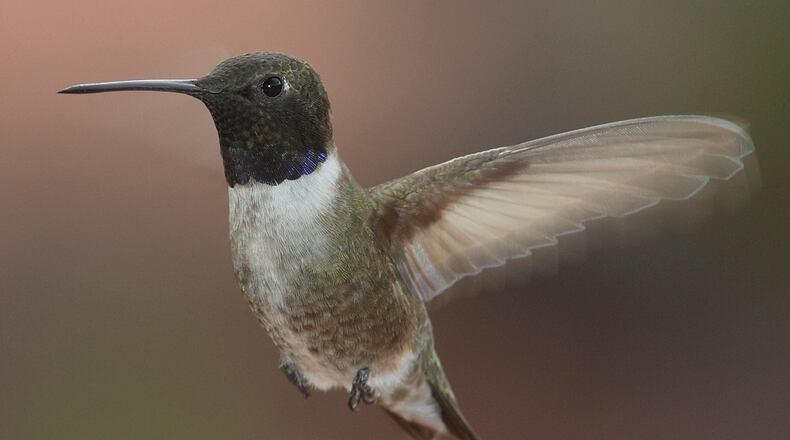Ruby-throated hummingbirds, the only hummingbirds that nest in Georgia, should be very scarce in the state at this time of year. During the dead of winter, the beloved little birds should be settled in their winter homes in tropical Mexico and Central America, not due to return until mid- to late March.
Even so, each year, some ruby-throats opt out of migrating to the tropics and instead spend the cold season in Georgia and elsewhere in the South. So far this winter, several homeowners around the state report having a non-migrating ruby-throat hanging out in their backyard.
There may be several reasons why a hummingbird does not migrate: It may be too ill, too old or too young. Some recent reports, however, suggest that more and more ruby-throats are overwintering in Georgia and elsewhere in the U.S. instead of flying south. A possible reason may be increasingly milder winters due to climate change.
Ruby-throats, though, are not the only hummer species that may spend at least part of the winter in Georgia. As many as nine other hummingbird species may show up in the state during the cold months. Some birders even say that winter is Georgia’s “second hummingbird season.”
So far this winter, in addition to ruby-throats, four other hummingbird species have been seen in the state — rufous, Allen’s, black-chinned and broad-billed hummingbirds. Other species that have visited during previous winters include the calliope, buff-bellied, broad-tailed, Anna’s and Rivoli’s hummingbirds.
Of the nonnative species, the rufous hummingbird has been Georgia’s most common winter visitor. Recent reports, however, indicate that the species may be coming to the state much less often than in previous winters. Again, climate change may be a factor.
Most of Georgia’s “winter hummingbirds” are native to western America. Why they show up in Georgia during winter is still largely a mystery. Nevertheless, the Georgia Department of Natural Resources says that if you leave a nectar-filled hummingbird feeder up all winter, you will have a sporting chance of attracting one of the little birds.
IN THE SKY: From David Dundee, Tellus Science Museum astronomer: The moon is in last quarter this weekend. Mercury and Mars are very low in the east just before sunrise. Venus rises out of the east a few hours before sunrise. Jupiter is high in the southwest at sunset.
Charles Seabrook can be reached at charles.seabrook@yahoo.com.
About the Author
Keep Reading
The Latest
Featured


